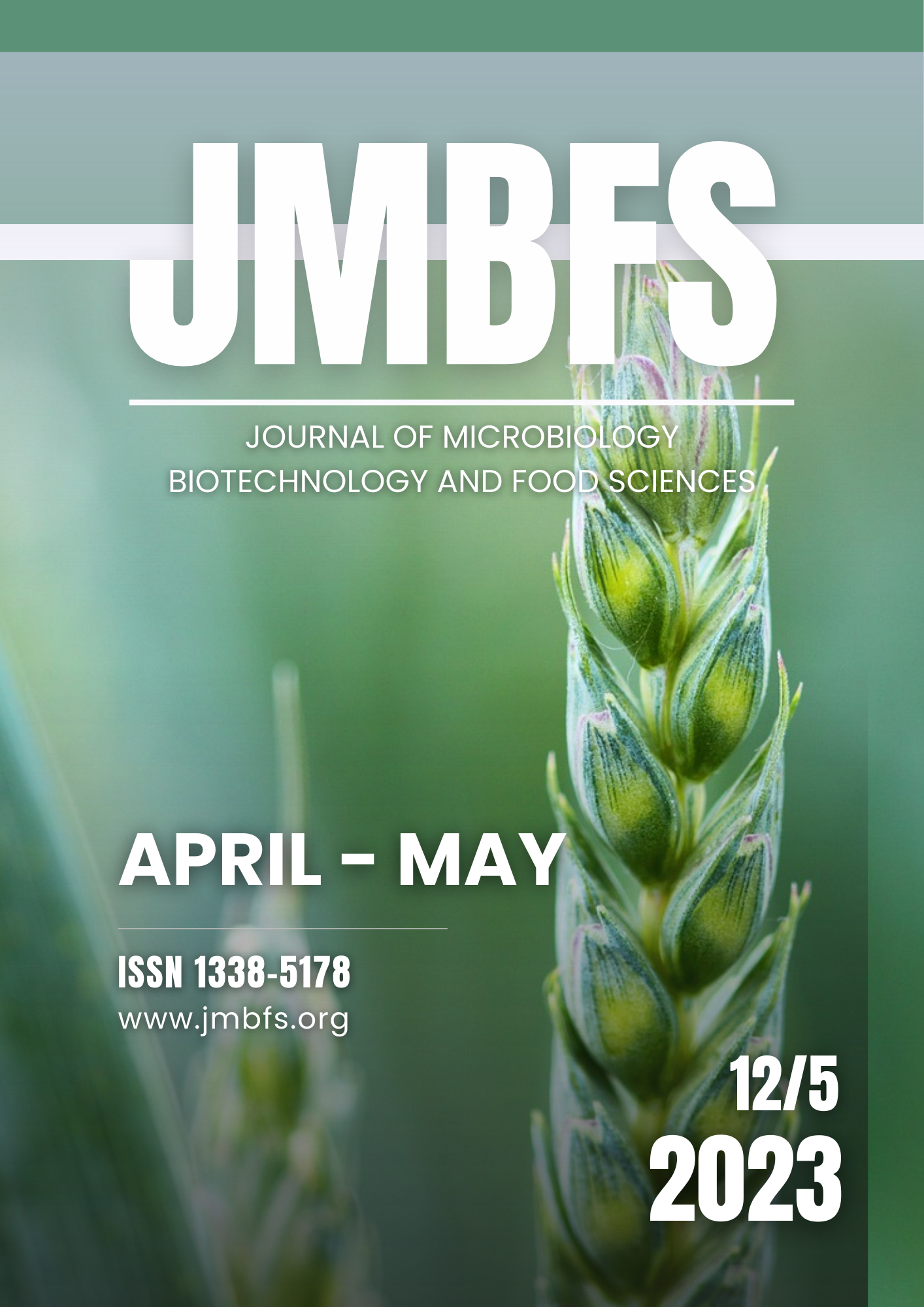ENVIRONMENTAL DETOXIFICATION POTENTIAL OF AXENIC AND MIXED CULTURES OF BACILLUS SPECIES ON PESTICIDES USING AN IN VITRO BIODEGRADATION ASSAY
DOI:
https://doi.org/10.55251/jmbfs.9272Keywords:
Emerging pollutant, Biodegradation, Bacillus, Pesticide, Paraquat, DichlorvosAbstract
Pesticide use is an integral part in global agricultural practice, however, these chemicals have recently been identified as emerging pollutants that impact on ecosystem health and sometimes require remediative intervention. This study assessed the biodegradative ability of species of Bacillus on the organochlorine herbicide, paraquat and the organophosphorus insecticide, dichlorvos. The Bacillus isolates were identified based on their genomic, biochemical and morphological characteristics while the ability of the isolates to degrade the pesticides was determined by monitoring changes in optical density, pH, total viable count and pesticide concentration in in vitro systems over an 18-day period using pesticide-modified mineral salts broth. The two Bacilli isolates were identified as Bacillus crassostreae and Bacillus niabensis. The organochlorine herbicide was more readily utilised by the axenic Bacillus isolates and their mixed culture than the organophosphorus insecticide as evidenced by variations in turbidity and counts. Biodegradation was more effective with the mixed culture than with the axenic cultures. Pesticide degradation levels of 64.26 % – 93.70 % and 70.43 % – 98.20 % were observed for the insecticide and herbicide respectively for both the bacilli and their mixed culture as revealed by gas chromatography analysis. The degradation efficiencies of the two bacilli for both dichlorvos and paraquat showed significant differences from each other and from the mixed culture at 95% confidence interval. The study established the potential of Bacillus crassostreae, Bacillus niabensis and their mixed culture to be employed as inocula in the detoxification of pesticide-contaminated environmental media.
Downloads
Downloads
Published
How to Cite
Issue
Section
License
Copyright (c) 2022 Anwuli Osadebe, Peace U. Patrick

This work is licensed under a Creative Commons Attribution 4.0 International License.
All papers published in the Journal of Microbiology, Biotechnology and Food Sciences are published under a CC-BY licence (CC-BY 4.0). Published materials can be shared (copy and redistribute the material in any medium or format) and adapted (remix, transform, and build upon the material for any purpose, even commercially) with specifying the author(s).





